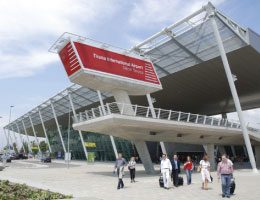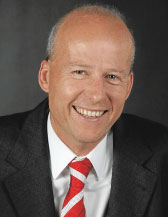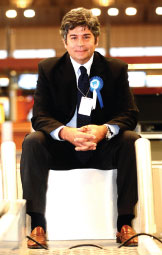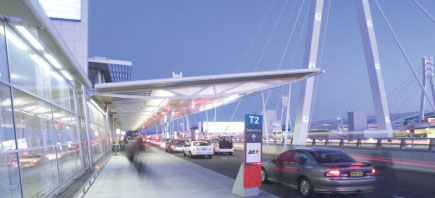
Tirana Airport – operated by HOCHTIEF Concessions – recorded growth of +10% during 2009; a stark contrast to the average European decline of -5.6%.
When the global economic crisis struck in 2008, airport investment from the private sector unsurprisingly suffered a major dip. Declining passenger numbers, the rising cost of construction and a lack of potential in both aeronautical and non-aeronautical revenue streams threatened to herald the end of an era of global airport investment.
However, as world economies gradually recover – and as airports continue to expand their previously limited revenue streams – investors are cautiously starting to explore new opportunities.
“I expect privatisation to get quite active towards the end of the year, and most definitively in 2011 and onward,” explained Thomas Frankl, CEO, Airport Development Partners (ADP). “My vision is that by the close of this decade, most governments will have understood that with the appropriate privatisation model in place, there is really no good reason for airports to be publicly owned and operated; call it the end of ‘flag airports’.”

Frankl: "I expect privatisation to get quite active towards the end of the year, and most definitively in 2011 and onward."
While Frankl is confident that an upturn is inevitable, it may not, he warns, mark the return to the heavy investment that typified pre-recession privatisation.
“We have entered a new era of cost awareness, which is, of course, only a consequence of air travellers’ increased price sensitivities,” he explained. “The times of splendid terminal buildings winning prestigious architecture awards are probably over, at least in many parts of the world.
“What we will see more frequently will be awards for environmentally efficient buildings but, fortunately, one doesn’t have to exclude the other. This principle also extends to operations; environmentally efficient operations are also inherently less wasteful and therefore more cost efficient.”
Economic defiance
Despite the dire economic circumstances brought about by the global financial crisis, GMR Group – along with its consortium partners – has continued to invest in its portfolio of airports.

Bassetti: "GMR is a long-term role player in the airport industry and is therefore capable of absorbing, in time, the effects of an eventual short-term crisis."
Carmine Bassetti, head of airports, GMR International, said “We previously experienced an aviation catastrophe following the 9/11 attacks in the US, the SARS epidemic and the Iraqi war that caused the collapse of air traffic and passenger revenues, and this consequently led to airport investments being postponed due to the severe economic uncertainty created.
“The fact that the industry has now suffered a second shock via the recent global financial crisis has definitely changed the playing ground towards investors considering the airport business as a potential investment.”
In spite of the uncertain financial foundations, GMR has successfully completed the Terminal 3 development at Delhi International Airport, which was inaugurated on 3 July, while Istanbul Sabiha Gökçen International Airport experienced a +93% increase in domestic passengers and a rise of +100% in international passengers during the first six months of this year, compared to the same period for 2009.
With the same strategic approach, in July, GMR was also awarded the Maldives bid for the development and management of Male International Airport.
Bassetti explained “The main reasons for GMR to continue the initial airport developments notwithstanding the financial crisis are to be found in the fact that in both cases, there were very robust business cases. Most importantly, GMR is a long-term role player in the airport industry and is therefore capable of absorbing, in time, the effects of an eventual short-term crisis.
“The global economic downturn has demonstrated the volatility of the aviation sector as a whole. The clear lesson for airport operators is that long-term strategy and decision-making is essential in order to remain competitive in a difficult market.”
Ensuring stability
Another major investor in the aviation sector, HOCHTIEF Concessions, has recorded stable results since 2009 and Reiner Schränkler, member of the Executive Board, echoed the positive outlook for future airport investment. Ranging from Athens to Sydney, the company has interests in six airports across the globe.
While European airports suffered an average decline in passenger numbers of -5.6% in the last full year, HOCHTIEF Concessions’ airports managed to weather the storm with Tirana the standout performer, recording a 10% increase in traffic.

Schränkler: "The aviation industry recovers quickly from any crisis and soon returns to a path of long-term growth."
Schränkler said “The outlook for the future is positive. By the end of last year, the downward trend had already eased. In November, more than half of all the European airports reported that they were back on a growth trajectory for the first time since August 2008. This appears to confirm the experience of the past: that the aviation industry recovers quickly from any crisis and soon returns to a path of long-term growth.”
Future growth
So, with the recovery seemingly well underway, what does the future hold for airport investment? Bassetti said: “The financial crisis has led to a significant decline in the number of privatisation and investment opportunities within the airports sector. As market sentiment recovers, the expectation is that these deals will come back to the table and activity will again stir. However, while transaction activity is expected to increase, it is questionable whether or not transaction multiples will ever return to their pre-crisis high.”
While Frankl said that “there has never been a better time for airport privatisation and development” and that ADP is “looking closely at three regional airports right now, which offer quite incredible development opportunities”, Schränkler also explained that “the market is starting to come back to life”. He concluded “Two things are certain: Investments in airport capacity are needed on a global basis, and public authorities will be under even stronger pressure than before regarding their finances, and so in the medium to long-term, the need for privatisation is set to grow again.”







